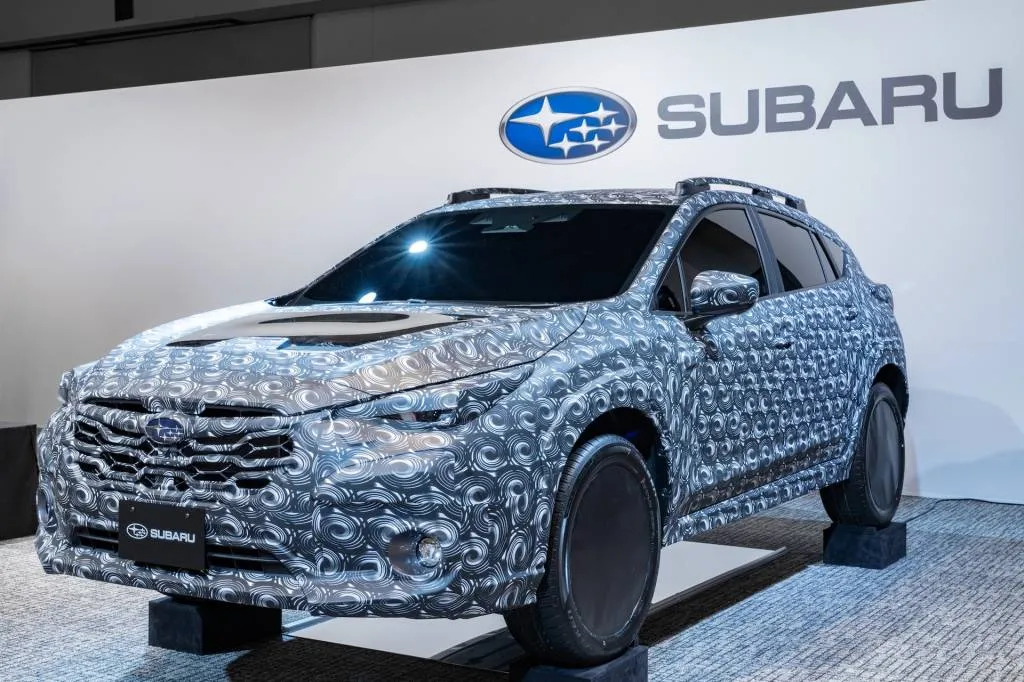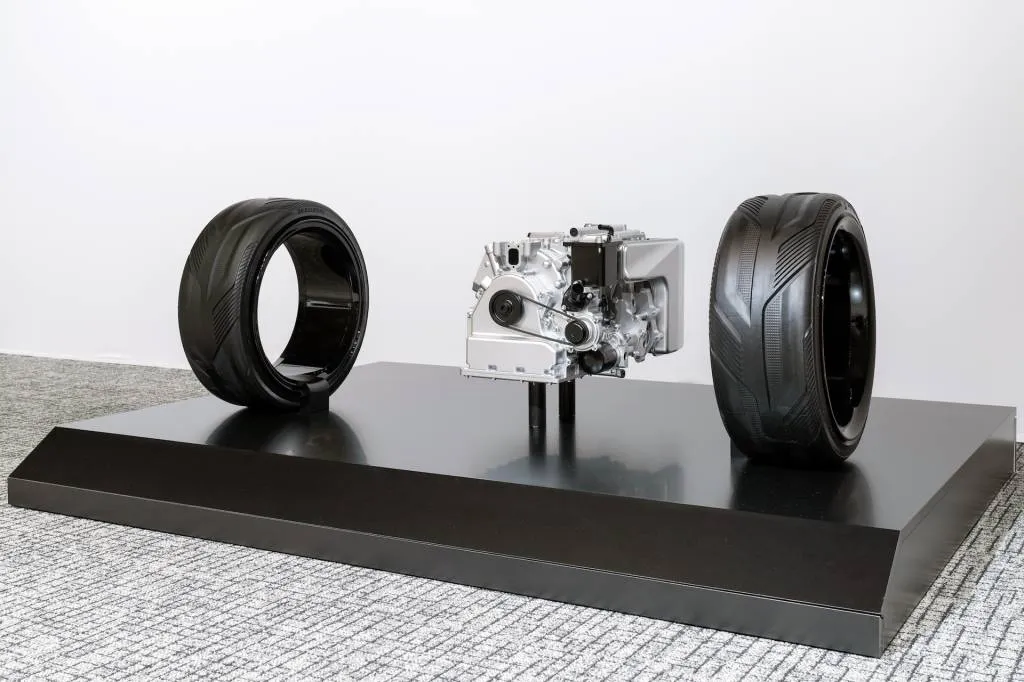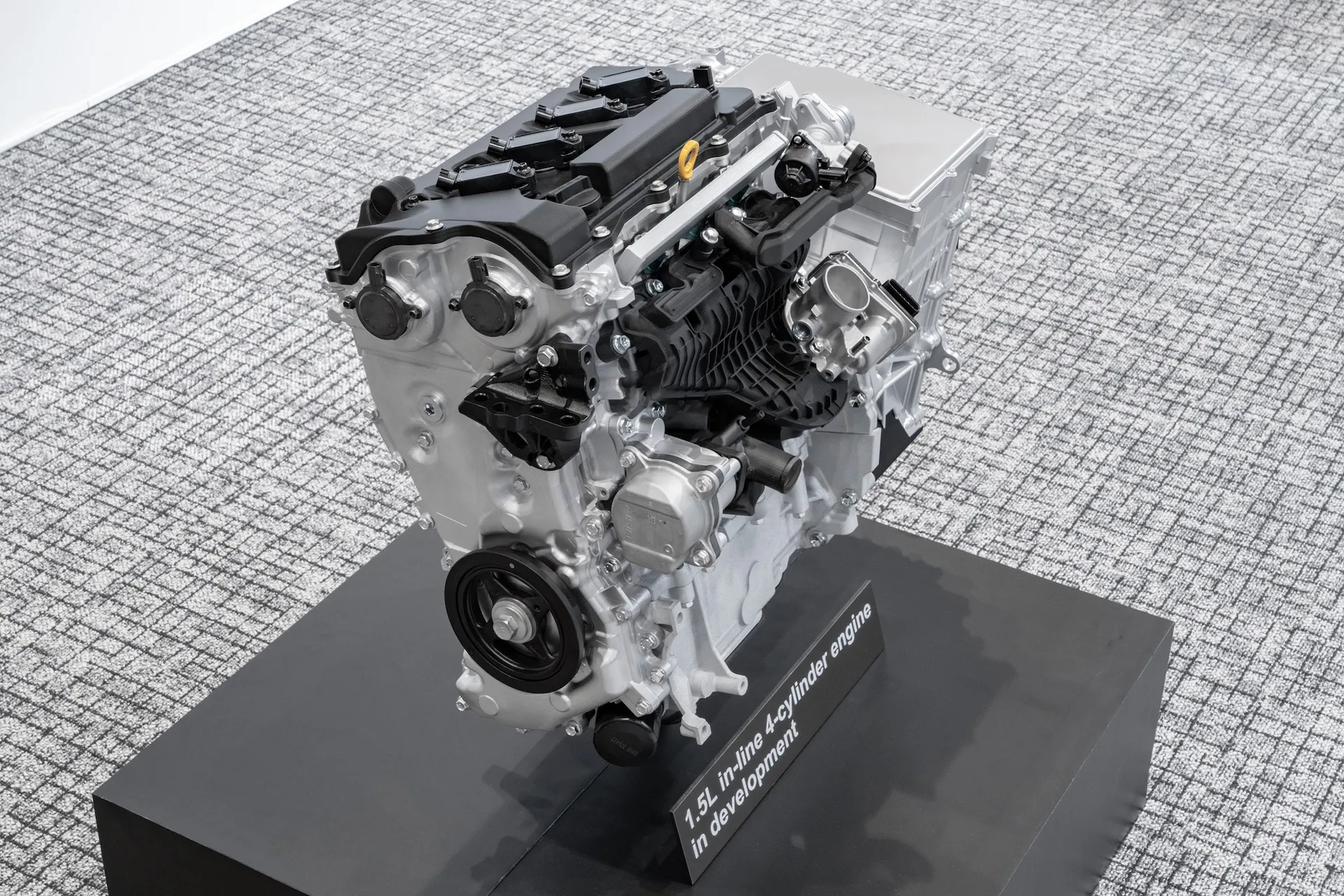Toyota, Mazda, and Subaru on Tuesday announced plans for joint engine development aimed at reducing emissions.
The goal of the project is to achieve carbon neutrality with internal-combustion engines, allowing these engines to stay in production in a future of tighter global emissions standards, the three automakers said in a press release.

Subrau Crosstrek Hybrid prototype
One aspect of this will be developing smaller, more fuel-efficient engines, which will also “allow for even lower hoods, improving design possibilities and aerodynamic performance,” the automakers said. They also “aim to optimize integration with motors, batteries, and other electric drive units” for hybrid powertrains. Subaru showed a camouflaged Crosstrek Hybrid prototype at the presentation.
The three automakers will also continue exploring alternatives to conventional fossil fuels, including synthetic fuels, biofuels, and liquid hydrogen. This follows another joint development effort announced in 2021, in which Subaru and Toyota announced plans to test BRZ and GR86 sports cars, respectively, run on synthetic fuel, while Mazda contributed a biodiesel-fueled Demio hatchback.

Mazda rotary range extender
Toyota in 2021, also debuted a Corolla race car that burned hydrogen in its combustion engine. The car was campaigned in the Japanese Super Taikyu Series that year, reviving an idea that was previously put into practice in 2006, when BMW presented a 7-Series prototype with a hydrogen-powered V-12 engine.
Other automakers have also shown interest in synthetic fuel, also known as e-fuel, which aims to achieve carbon neutrality by absorbing carbon from the atmosphere in its production process, cancelling out any emissions from burning the fuel. Porsche announced earlier this month that its Mobil 1 Supercup one-make race series is switching to synthetic fuel this year.
